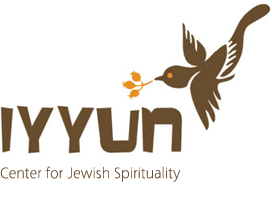Lamnatzeiach In this powerful chapter of Psalms, the name of God, Elokim, appears seven times. Elokim is the screen that shields the receiver from the infinite overwhelming light of God, expressed in the essential four-letter name, the Tetragrammaton, which is spelled in Hebrew yud-hei-vav-hei, and which we are forbidden to pronounce.
Read more...The dramatic story of Chana captures the essential nature of prayer on Rosh Hashanah. In fact, according to some opinions, it was on Rosh Hashanah that Chana first prayed for a child. As the story begins, we learn that Chana is bereft of children, and in her agony, she comes to
Read more...Before we begin reading the Torah, we open the ark and recite a passage from the Zohar. The Baal Shem Tov once said that when the ark is opened and we recite these words with purity, faith and from the depths of our heart, God will fulfill our requests, whether fully
Read more...What do we bring to the table of judgment? Our brains, our power, our art. These are all from God. Even when we decide—and it is our own decision—to do good and to restrain ourselves from the opposite, we are only playing our part in a cosmic script for which
Read more...We all believe. "Israel are believers, the sons of believers." Some of us are consciously aware of our innate beliefs; others of us are not because life experiences and negative indoctrination have covered over our essential selves. At times, the very fact of speaking about our beliefs makes our inner
Read more...The Midrash tells us that following the brutal murder of his brother Hevel, Kayin was summoned to the heavenly tribunal for judgment. After a brief deliberation, it was decreed that Kayin would be condemned to a life of wandering: "You shall become a vagrant and wanderer on earth." Acknowledging the
Read more...Before we conclude the Amidah we take three steps backward, taking the intense energy that was present during our prayers and bringing it down into this world—into the three levels of creation (beriah), formation (yetzira) and action (asiya). Thus, we integrate and tie up our prayers so that there is
Read more...In the prayer service, whenever there is a change between prayers, a break or movement, a special prayer called a kaddish ("sanctification" of the name of God) is recited in order to bring unity. Whenever there is a separation in the prayers—or for that matter a "break" in life itself—we recite
Read more...God will extend a hand and assist us in the process of self-transformation and re-unification.
Read more...Recent Posts
- September 2, 2025New Book for Sukkot by Rav Pinson!
- August 29, 2025Rosh Hashanah at IYYUN
- August 28, 2025Yom Kippur at Iyyun with Rav Pinson
- August 27, 2025Simchat Torah 2025
- August 26, 2025Sukkot on the Farm 2025



